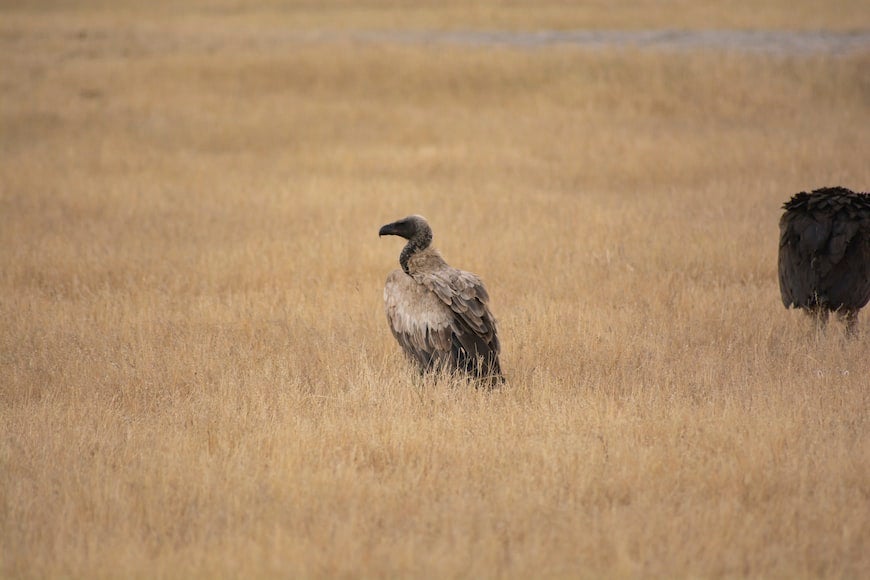Over 50 endangered vultures poisoned in Botswana’s Chobe National Park
Officials found heads, feet and internal organs were harvested, pointing to possible resale for medicinal use

Your support helps us to tell the story
From reproductive rights to climate change to Big Tech, The Independent is on the ground when the story is developing. Whether it's investigating the financials of Elon Musk's pro-Trump PAC or producing our latest documentary, 'The A Word', which shines a light on the American women fighting for reproductive rights, we know how important it is to parse out the facts from the messaging.
At such a critical moment in US history, we need reporters on the ground. Your donation allows us to keep sending journalists to speak to both sides of the story.
The Independent is trusted by Americans across the entire political spectrum. And unlike many other quality news outlets, we choose not to lock Americans out of our reporting and analysis with paywalls. We believe quality journalism should be available to everyone, paid for by those who can afford it.
Your support makes all the difference.At least 50 endangered whitebacked vultures have been reported dead in Botswana after feeding on a poached buffalo carcass laced with poison in Chobe National Park.
The vultures were reportedly found less than 20 meters off a “well-used” track. According to information from a source the poachers harvested heads, feet and internal organs from at least 10 vultures possibly for resale.
“The carcass (Buffalo) was without the right rear leg and part of some ribs. The tip of the tail was also cut, and most of the carcass was not eaten,” he told this publication. He said as for vultures, some were without both legs, with the legs “nicely cut” while heads were also missing as well as internal organs such as lungs, heart, and liver. “A knife was used to cut all the parts.
It is suspected that a buffalo was killed before being poisoned for vultures to feed so that some vulture organs are collected.”
The source said although decomposed, the samples were taken for analysis to determine the cause of death. He said it was a strenuous job as some vultures were on top of tall trees but he team managed to collect all and burn the rest including the Buffalo. Attempts to get a comment from the Department of Wildlife and National Parks (DWNP) proved futile as the Director Dr.
Kabelo Senyatso would not be drawn into discussing the matter, saying they had released a communique. International media also reported at least 100 more vultures died in neighboring South Africa around the same time, raising the tally of vultures killed in the region to at least 150.
“The critically-endangered vultures were poisoned to death in separate incidents in Botswana and South Africa,” one report said. Adding that conservationists warned the mass killings pushed the birds even closer to extinction.
“In the latest incidents, more than 50 white-backed vultures were found dead in Botswana’s northern Chobe district on Friday, while about 100 others were discovered in South Africa’s Kruger National Park on Thursday, according to vulture conservation group Vulpro.”
The news report quoted vulture conservation group Vulpro as having said the repercussions of the poisonings were huge.
The conservation group said vulture populations cannot withstand these losses, warning that the threat of extinction creeps ever closer. The birds in South Africa are also reported to have died from a poisoned buffalo carcass.
“What makes this even more catastrophic is that it’s breeding season now and chicks will not survive without their parents”, Vulpro founder Kerri Wolter said.
Reports said Park officials in South Africa said they were investigating the incident, adding some of the carcasses appeared to have been harvested for their body parts. “Vulture poisoning is not uncommon in wildlife-rich southern Africa, where they are preyed on by poachers because they draw unwanted attention to their illegal activities,” the international news report reads.
The white-backed vulture is listed on the International Union for Conservation of Nature’s (IUCN) “red list” of critically-endangered bird species. One of the largest vulture deaths recorded in recent years in Botswana was in 2019, when 537 carcasses were discovered in the Chobe game reserve after they ate carcasses of three elephants killed by poachers.
This article is reproduced here as part of the African Conservation Journalism Programme, funded in Angola, Botswana, Mozambique, and Zimbabwe by USAID’s VukaNow: Activity. Implemented by the international conservation organization Space for Giants, it aims to expand the reach of conservation and environmental journalism in Africa, and bring more African voices into the international conservation debate.
Read the original story here:
Join our commenting forum
Join thought-provoking conversations, follow other Independent readers and see their replies
Comments